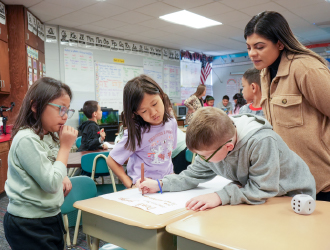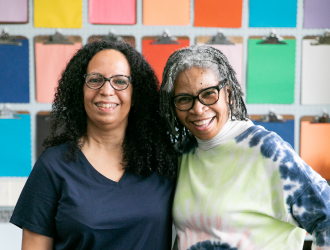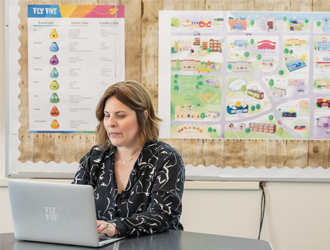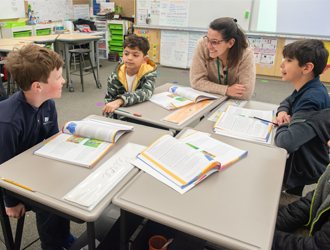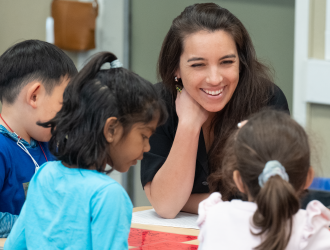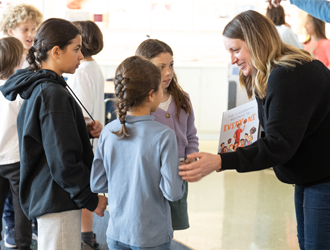Friendship Rules: Promoting Connections in the Classroom
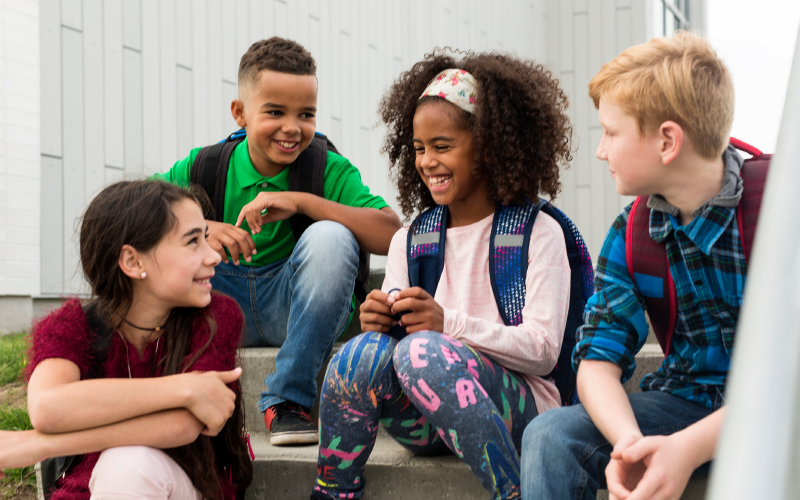
Every child needs friends to feel safe and happy, but some children need special help to make and keep friends. As teachers, it’s our job to help these students develop the skills they need to have positive, lasting relationships with their peers, including skills that foster their friendships and promote positive social behavior at school and at home.
The Importance of Friendship
Throughout our lives, we all experience many different friendships that help us to feel positively connected to the world around us. In the classroom, students have ample opportunities to develop friendships and build skills—skills that are essential to their happiness, well-being, and development (Hall, 2018). When we give our students the space to foster strong relationships with their peers, we increase their likelihood to have positive attitudes about school, leading to improved academic performance (Ferrer & Fugate, 2014). It is also important to remember that the skills that students need in order to establish and maintain friendships need to be explicitly taught, reinforced, and practiced.
When children understand how to form lasting relationships, they are growing a crucial aspect of their SEL skills. Honing the skills necessary not only to establish but maintain healthy friendships over time is a lifelong endeavor that leads to successful relationships in school, at home, and in the workforce. Research shows that over time, the quality of our friendships can even be predictive of happiness and success later in life (Hall, 2018). This is why providing students with the proper tools to practice making and keeping friends is so important. For example, a classroom of “active listeners” sets high expectations for what it means to be a supportive friend. Educators can set the stage by role-playing and demonstrating eye contact and positive body language and then allowing students to practice in small groups (McCullough, 2019). Additionally, when students share aspects about themselves and their classmates respond with thoughtful and caring responses, students have the opportunity to learn about each other and build a positive classroom community. This teaches students openness and empathic listening, two important skills for forming trusting relationships (Vincent, 2020).
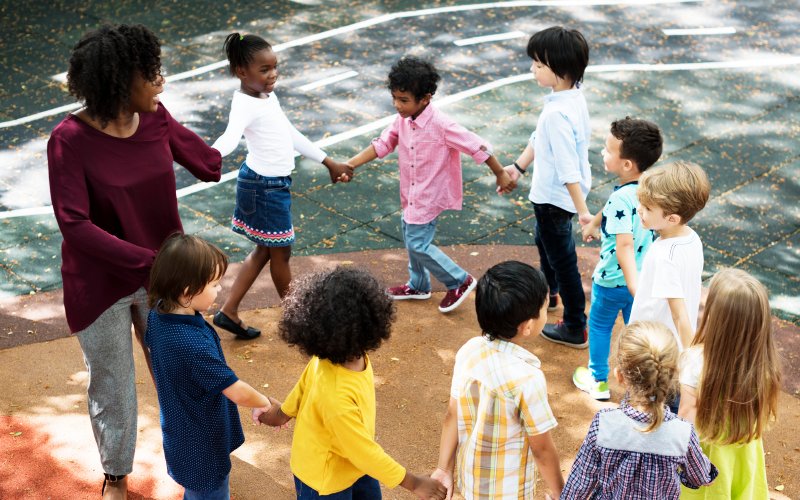
Cultivating the Conditions for Friendship
While students practice building relationship skills in and out of the classroom, it is important for educators to facilitate a positive learning environment where friendships can grow. One of the most basic ways to encourage friendship is by simply allowing children to spend time with each other—from collaborative work and recess to playdates and joining teams or clubs that introduce them to many potential friends (Ferrer & Fugate, 2014). Not only is it important for children to be exposed to many different kinds of relationship-building activities, but adults should also make sure to give children explicit instruction on how to interact with others, model appropriate behaviors, and practice social interactions through interactive role-play (UConn, n.d.). As students learn to apply their cooperation skills and social competence more broadly, research shows that these abilities can decrease the likelihood of undesirable attitudes about school and improve academic achievement (Shoda et al., 1990).
By recognizing the essential skills that students need in order to form healthy, lasting friendships, we can take an active role in ensuring that these skills are taught in an environment that offers the space, support, and instruction that is necessary for them to thrive. With these skills, students will experience all of the benefits that friendship has to offer—in the classroom and beyond.
References
Ferrer, M., & Fugate, A. (2014). The importance of friendship for school-age children. University of Florida, Institute of Food and Agricultural Sciences. https://www.frontierdistrict.k-state.edu/family/child-development/docs/school-age/ImportanceFriendship.pdf
Hall, J. A. (2018). How many hours does it take to make a friend? Journal of Social and Personal Relationships, 36(4), 1278–1296. https://doi.org/10.1177/0265407518761225
McCullough, R. (2019, November 12). Strengthening students’ speaking and listening skills. Responsive Classroom. https://www.responsiveclassroom.org/strengthening-students-speaking-and-listening-skills/
Shoda, Y., Mischel W., Peake, P. K. (1990). Predicting adolescent cognitive and self-regulatory competencies from preschool delay of gratification: Identifying diagnostic conditions. Developmental Psychology, 26(6), 978–986. https://doi.org/10.1037/0012-1649.26.6.978
University of Connecticut Center for Excellence in Developmental Disabilities Education, Research and Service (UConn). (n.d.). Pyramid toolbox: The importance of teaching friendship skills. https://uconnucedd.org/wp-content/uploads/sites/3346/2021/09/Issue-4-Toolbox.pdf
Vincent, K. (2020, February 19). Student sharing: A strategy for culturally responsive teaching. Responsive Classroom. https://www.responsiveclassroom.org/student-sharing-a-strategy-for-culturally-responsive-teaching/
Please Sign in to Your Account.
Create a Free Account
Gain access to limited free articles, news alerts, select newsletters, podcasts and some daily games.


